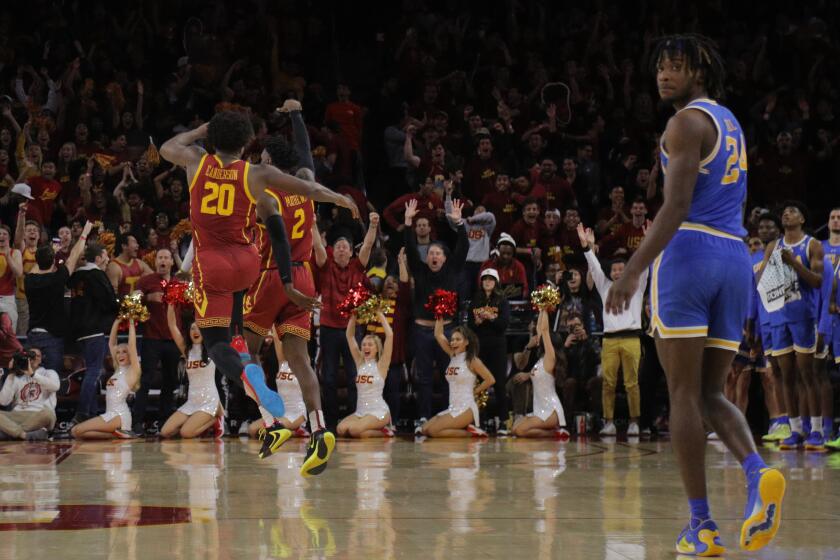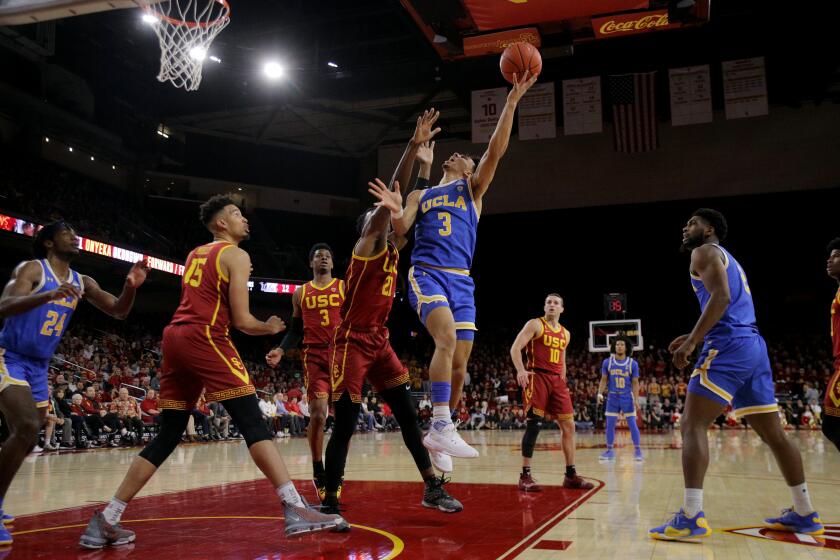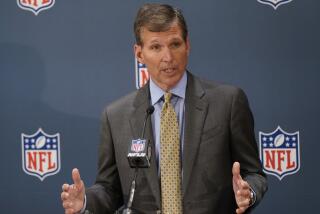Column: Amid coronavirus, sports need to save fans from themselves by shutting them out
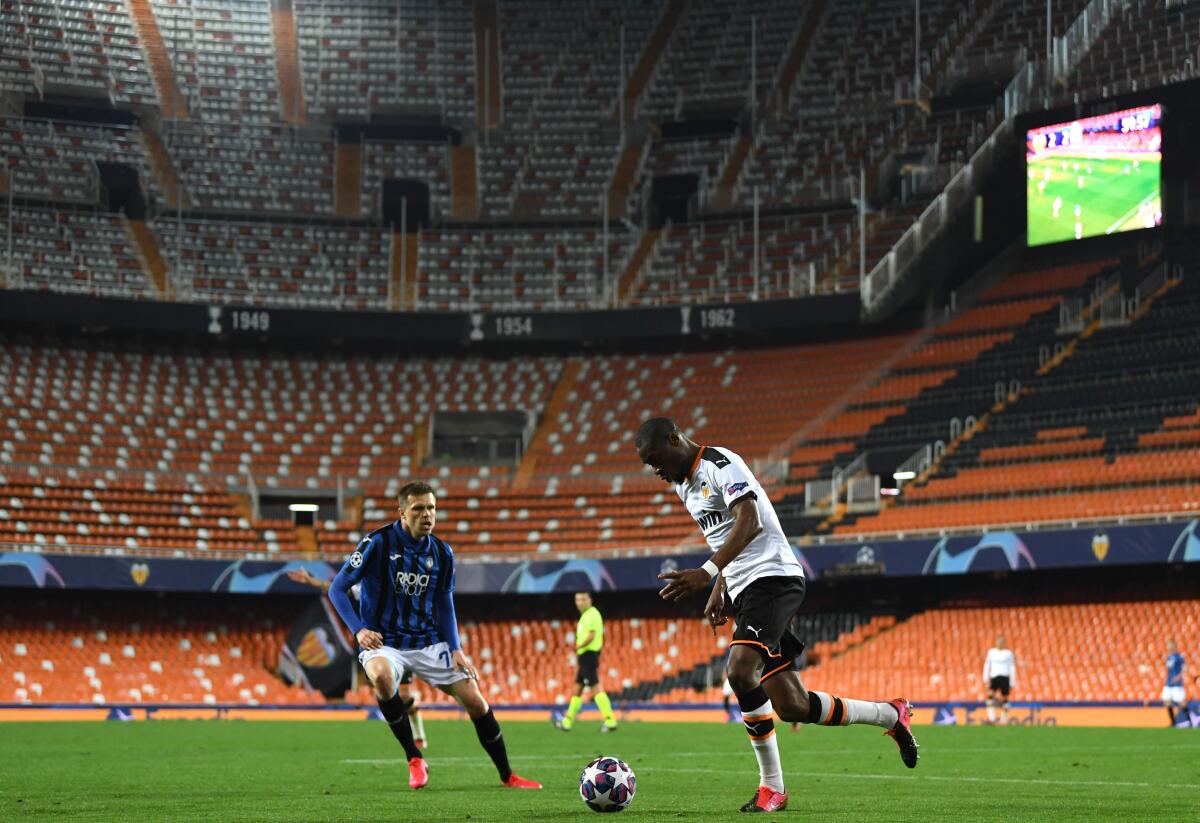
This past weekend, I attended three crowded basketball games in downtown Los Angeles.
Thousands of fans roared themselves hoarse as the Lakers clawed to their two biggest wins of the year while USC beat UCLA on a three-pointer at the buzzer.
It was exhilarating. It was terrifying.
Huge crowds moved in tight packs through the concourses of Staples Center and the Galen Center, bumping and brushing and connecting. Long lines hurried through restrooms where no surface went untouched. Food was passed and shared from concession lines to condiment stations.
In moving through the various mobs on my way to press row, amid the excitement of the moment, I shook hands without thinking, patted shoulders without looking, and literally bumped heads with at least one poor soul who stopped suddenly in front of me.
Amid the quickening spread of the coronavirus, what should have been an ideal atmosphere suddenly felt like a deadly one, and itâs clearly time for sports officials to put down their greed and take up the fight.
As the NCAA, its member universities, and the conferences they represent contemplate how to proceed with college athletics amid the threat of coronavirus, USC will continue for the foreseeable future without fans present.
Lock it out. Shut it out. Empty the crammed stands. Clear the jammed concourses. Vacate the unsanitary restrooms. Shutter the ticket windows.
Bolt your doors to all fans and play the games with only essential personnel until COVID-19 is contained.
Youâll lose money, but you could save lives, and your games will survive.
The NBA can dunk without fans high-fiving. The NHL can skate circles without fans hugging. Major League Soccer can score without fans sharing their beers. Major League Baseball can hold spring practice in solitary. And yes, the NCAA still can hold its annual dance without bare-chested fans jumping on top of each other.
For now, every sport that attracts fans needs to make those fans a priority by keeping those fans away.
Please, please, save us from ourselves.
Some organizations already are smartly doing it. The Big West Conference menâs and womenâs tournaments will be played spectator-free this week in Long Beach and Anaheim.
Yet similar organizations continue to put cash before common sense. The Pac-12 Conference, not the brightest bulb in the best of circumstances, has vowed to keep the doors open on this weekâs menâs tournament at T-Mobile Arena in Las Vegas.
For once, everything that happens is Vegas is probably not going to stay in Vegas, the big crowds returning home next weekend to spread whatever, wherever.
On the eve of the Pac-12 Conference basketball tournament, growing fears of the coronavirus and the deep field on the court create uncertainty.
âThe Pac-12 will, as always, take concerted steps to maintain the first-rate delivery of Pac-12 championship experiences for participating student-athletes, membership personnel and fans,â the conference statement read.
Fine. Deliver this tournament through the âfirst-rateâ method known as television. Sports have become largely a television event anyway. Nearly every person who will be watching the tournament will be watching on TV.
So the empty-looking video will be odd, but the audio will be outstanding. Weâll hear shoes squeak, coaches shout and players cheer (and, gasp, even curse). The vacant setting will look eerie, but itâs not going to make anybody sick.
Both USC and UCLA have made the wise move to ban fans from their sporting events for the rest of this month. Yet somehow their own conference thinks games in Las Vegas will be safer?
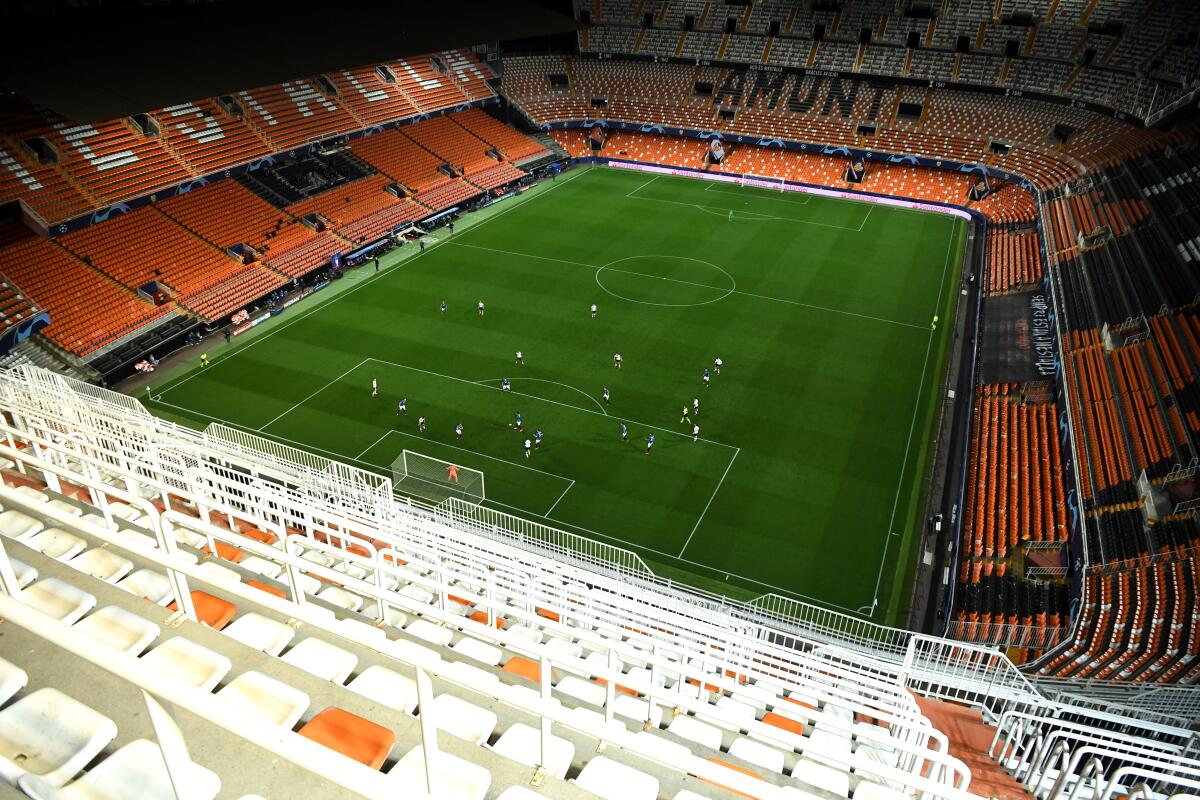
Moving ahead to next week, the true definition of March Madness would be to allow stands to be filled in arenas across the country, ensuring the virus potentially spreads from sea to sea. Yet thatâs what the NCAA will be doing if it doesnât shut its doors for the tournament.
The situation could get worse before it gets better. Actual games everywhere could wind up being canceled or postponed. The Ivy League already canceled its menâs and womenâs tournaments, and the BNP Paribas Open at Indian Wells was canceled, and surely other events will follow.
But for now, unless local officials recommend otherwise, play the games, just do it without all the fanfare, hoopla and danger.
The next big move needs to be made by the three major sports currently in action. When will the NBA and NHL lock the doors on regular-season games, and why is baseball still allowing fans to sit in sweat in spring training?
The reason, of course, is money. The leaguesâ owners didnât get rich caring about fans beyond how much they can soak them. Hereâs hoping these leagues actually will vote to become real leaders of the communities they pretend to serve and truly put the fans first.
When the Lakersâ LeBron James recently answered a smart question by The Timesâ Tania Ganguli with an off-the-cuff comment that he wouldnât play in an empty arena, he wasnât aware of the situation, and has since walked the comment back.
The UCLA womenâs basketball team could open the NCAA tournament in an empty venue after the school said fans may not attend home athletics events for a month.
âYou gotta listen to the people thatâs keeping track of whatâs going on,â he said Tuesday. âIf they feel like itâs best for the safety ⌠then we all listen to it.â
The people who are keeping track â health officials â say that one way to avoid the virus is to avoid large crowds. Shouldnât that be enough safety talk for everybody?
âThe four major organizations, NHL, soccer, Major League Baseball and the NBA put out guidelines to protect their athletes but not their fans,â Gov. Gavin Newsom said at a press conference. âI think they owe you and their fan base an answer as to why itâs more important to keep reporters away from their players in the locker room than fans [from other fans].â
Banning the media from the locker rooms is one thing the leagues have done right. Journalists are understandably worried that when the threat passes, the players will be so happy with the new arrangement that our access will be limited forever, but that is a fight for another day.
For now, last weekend in the Lakers locker room at Staples Center was evidence enough that this is a good idea. For nearly 30 minutes, dozens of reporters crowded shoulder to shoulder in front of James, folks literally leaning on each other while standing virtually nose to nose with James, sweat everywhere, everyone too tightly packed to move away from the one guy who was coughing.
It was senselessly awful. It was foolishly risky. It was a microcosm of what happens in the stands every night.
Empty them, and do it now.
More to Read
Go beyond the scoreboard
Get the latest on L.A.'s teams in the daily Sports Report newsletter.
You may occasionally receive promotional content from the Los Angeles Times.

